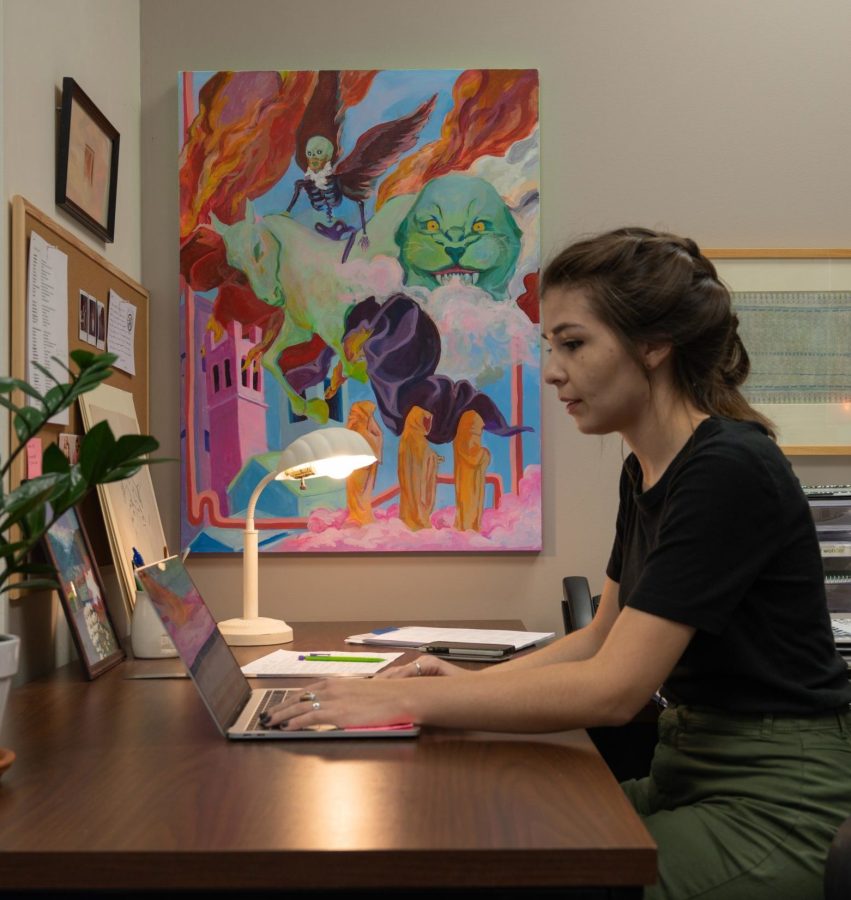The Center for Effective Teaching and Engaged Learning (CETEL), directed by Linda Abrams, trains faculty members to make them more effective teachers.
Abrams, a faculty member in the Division of History, Government and Social Science, organizes events and recruits volunteers for them. She works toward the center’s goal of exploring small changes to pedagogy that may have a large impact on students’ learning in the classroom setting.
CETEL helps faculty as they request it with a personalized plan to get feedback from students about improving their classroom experience.
The center helps professors through new faculty orientation in August; faculty Edu-Breaks, which are 50-minute faculty development sessions that happen twice a semester; mid-semester reviews and the May Institute.
“The May Institute is three days after commencement, and those are three days of intense faculty development that usually focus around one particular topic that helps faculty,” Abrams said. Out of BJU’s approximately 300 faculty members, 50-80 typically attend the optional May Institute.
Emma Hartman, a faculty member in the Division of Art + Design, attended the May Institute when she first arrived at BJU.
She said the May Institute allows faculty from different divisions to meet each other and suggest solutions for each other’s problems.
“For instance, we were talking about how to revamp some of our classes, and I was working on Design Theory [a class devoted to the principles of art] but had people from the seminary and science faculty talk through some of the problems I have with it and how they would solve it,” Hartman said.
“Since they are usually at the very end or beginning [of the school year], they are a nice way to reflect on what we’ve worked on through the semester, getting us back into the process of teaching or putting our classes together,” she said.
CETEL offers personalized services as well.
“We also offer a mid-semester course feedback program, which we just finished, where faculty volunteer to have somebody from CETEL go into their classes,” Abrams said. “In real time, they ask students what’s going right and what’s not going as well, what’s impeding their learning and what’s helping their learning, so they can make those course corrections mid-semester.”
CETEL sits down with individual instructors and asks what they want to learn from their students. The center then creates an evaluation that their consultant gives to faculty members’ students so both CETEL and the members gain anonymous feedback about how students learn in the classroom.
“We’ve had faculty who make these small changes because they realize that something is not accomplishing what they want it to accomplish,” Abrams said. “It’s a very powerful tool where faculty can make known to students that they really want to know how to improve their courses.”
“That’s a very scary thing to have somebody walk into your classroom and ask your students what’s going well and tell me what’s not going so well in your class, but the faculty use it,” Abrams said. “And we have a lot of faculty who volunteer to do it and they’re very interested in student feedback and fixing problems that they may not see but that the student sees. So that to me is very healthy.”
“And it’s evidence that faculty really want to partner with students to find out where learning is taking place and where it’s not, and how to fix it is really important to us as a faculty,” Abrams said. “So it’s very encouraging to me to work with faculty who care that much.”
Dr. Seth Custer, the head of the department of music theory and technology, has noticed CETEL’s impact on his department, although he himself has not directly worked with them.
“Every year they have ideas that end up becoming part of our in-service process,” Custer said. “In general, they come up with ideas that help us think about what we do in a different light or help us come up with best practices for what we as faculty do.”
CETEL also promotes a biblical worldview. “[The faculty] want what’s best for their students, not only what’s best for them academically, but they desperately care about their spiritual condition,” Abrams said. “And when we can come together as a faculty it makes us all better and stronger and focus on our purpose, that we’re training Christian young people to stand in the gap in this world that is in such need of the truth and the honesty that they bring to their various disciplines.”


























































